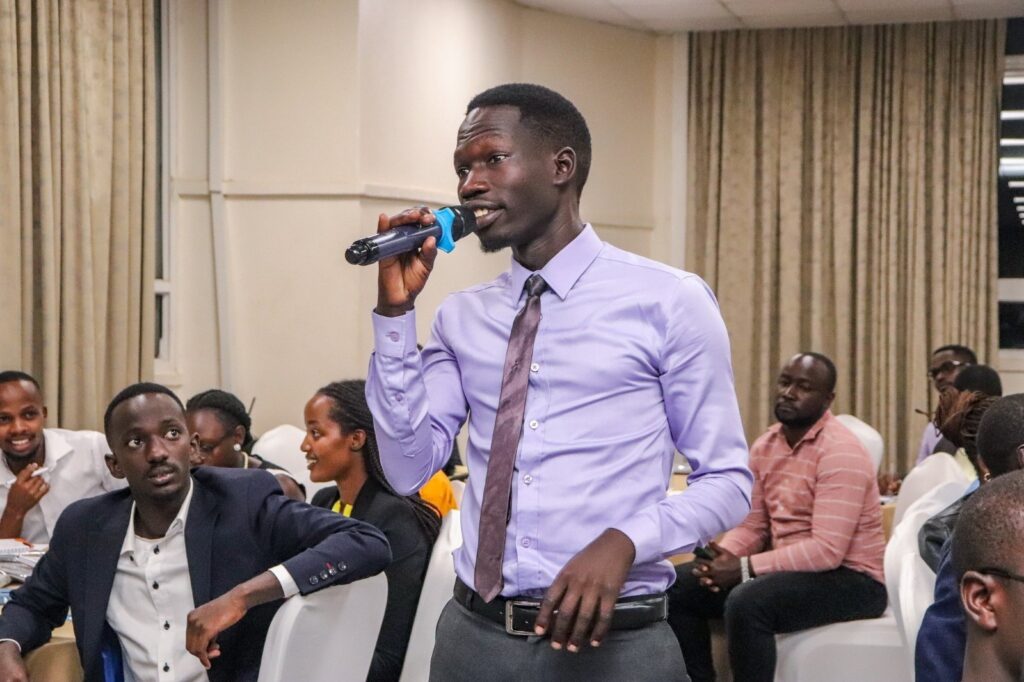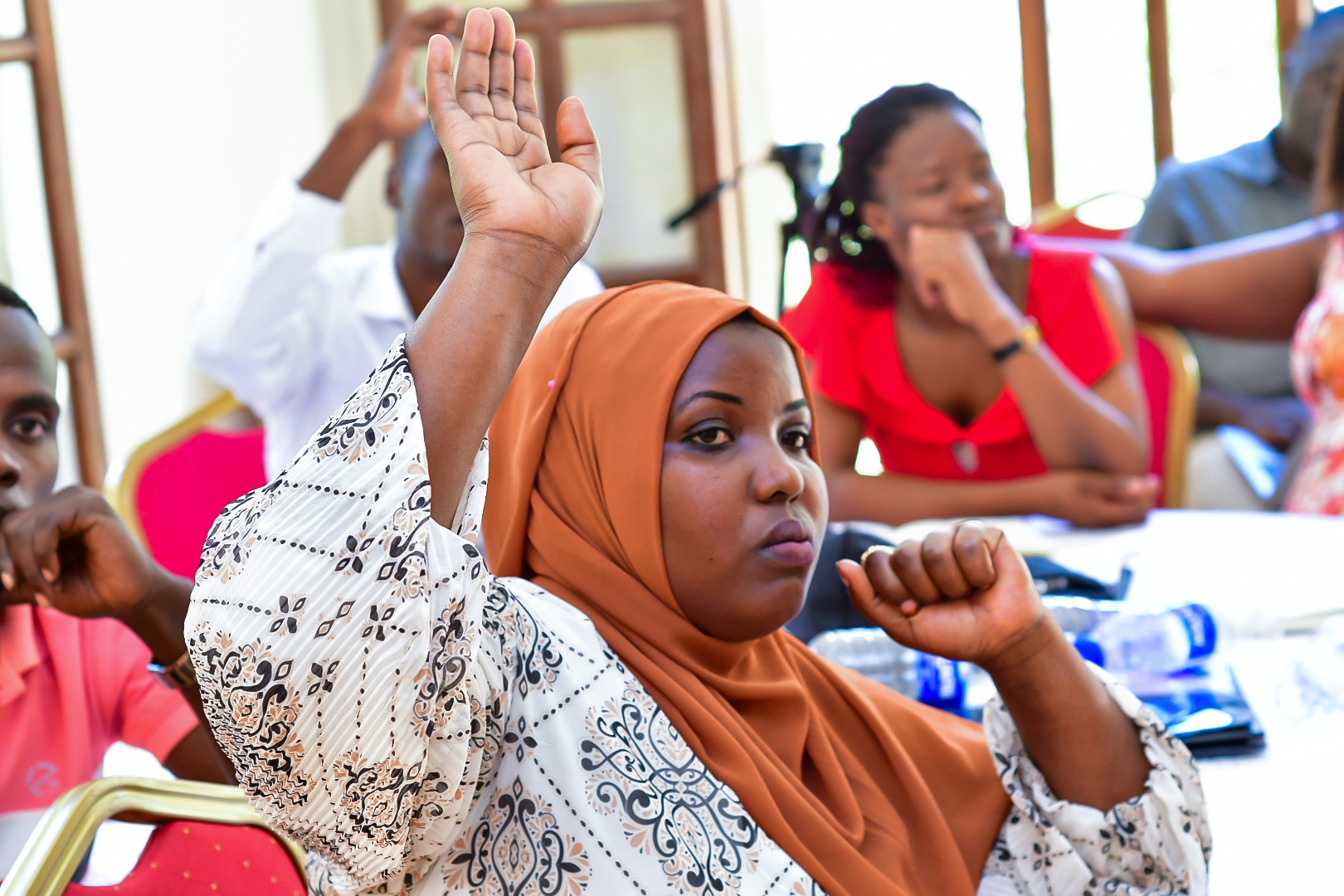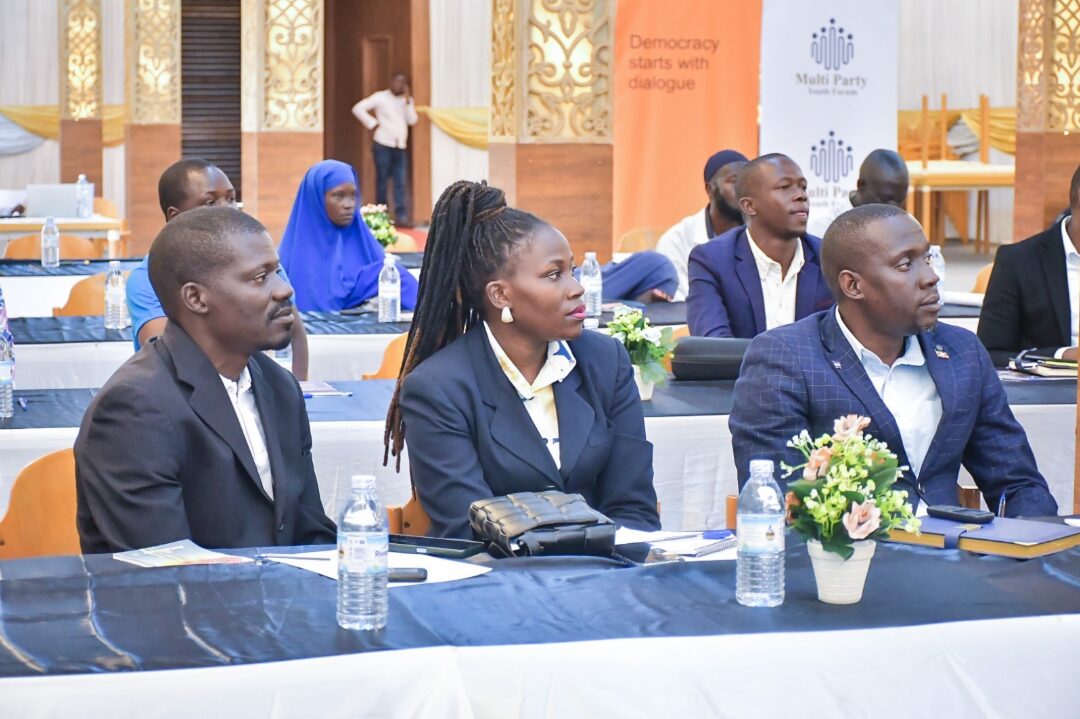Youth as catalysts for change in Uganda’s political system

On 5 July 2023, NIMD Uganda held the second session of the Uganda Democracy Academy fellowship. The Fellowship is a six month programme that aims to empower young individuals and enhance their leadership skills, political knowledge, and civic engagement. The participants are from political parties and various youth leagues in the country.
The theme of the second Fellowship was: History of Political Parties in Uganda: Are Political Parties a Vehicle for National Development and Transformation?
One of the participants is Rogers Tulyahabwe. He is a member of the European Union Delegation to Uganda’s first Youth Sounding Board. We asked Rogers to share his experiences and main take ways with us.
Mandate of political parties
After 20 years of a single party system, political parties were reintroduced in Uganda after the 2005 referendum, and we have since registered several parties. The question of the day was whether the emergence of these parties contributed much to national development compared to the two decades of their absence.
My take away from the fellowship is that, political parties can certainly serve as vehicles for national transformation. However, their effectiveness in achieving this goal depends on various factors. Since their emergence, political parties in Uganda have faced challenges, including internal and regional and ethnic divisions, excessive partisanship, and a focus on short-term electoral gains, rather than long-term planning.
In theory, political parties provide platforms for citizens to participate in the democratic process and express their opinions. By representing different ideologies and interests, parties can shape policies and mobilize support for national development. In Uganda, however, the extent of this mandate is usually limited to either the interests of individual political leaders or the extent to which the ruling party allows their participation.
Overcoming these challenges requires robust democratic processes, strong institutions, and active citizen participation.
Building a common agenda
Spaces like the Uganda Democracy Academy fellowships help build the common agenda. I appreciate NIMD for thinking about the youth as equal stakeholders in the quest for a better Uganda, and for creating a platform to nurture a generation of leaders who will streamline the existing systems, define Uganda’s vision and collectively peddle the transformation process.
The session made me realize just how unappealing public service in Uganda is. National appeal includes patriotism, pride, and a shared sense of identity. When these sentiments are lacking, people feel less inclined to actively and sacrificially serve their own country. The subordination of public interests to private aims and violations of the norms of duty and welfare, accompanied by deception and a callous disregard for any consequences suffered by the public, has defined the public service in this country and consequently diminished the sense of unity and shared purpose.
Need for transformative leadership
Every public leader in “The Pearl” occupies office with the attitude of “It’s my turn to eat”, meaning ideally that it is their opportunity to exploit those positions for personal gains. Uganda must grow from political self-indulgence to the public good. This requires building structures that work for all people, shaping the younger generation to be politically conscious, and respecting the principles of good governance and public service.
As such, the emphasis on transformative and servant leadership could not have been more timely. Even though youth have an uphill task of advocating for the development of structures and working systems, the Uganda Democracy Academy fellowship has contributed to building our capacities to conceptualize ideas. As most citizens in this country, the ball is in our court.
To our dear speaker, with the examples of Libya during Muammar Gaddafi’s reign, the Middle East, China and many other dictatorial countries, I am curious as to whether he believes that multiparty automatically leads to more democracy and, therefore, national development. I hope our dear guest speaker will spare some more time to guide us.
To my fellow participants in the Fellowship, even in our subscription to preferred political parties, let’s stop placing allegiance over fairness, objectivity and hard work. Otherwise, ours will become a perpetual journey to the promised land, always sought but never achieved.
The first Fellowship in June 2023 focused on regional integration. You can find the article here


